B.E. Electrical and Electronics Engineering
Programme Educational Objectives
Our Graduates will have
 Find employment in Core Electrical and Electronics Engineering and service sectors.
Find employment in Core Electrical and Electronics Engineering and service sectors.
 Get elevated to technical lead position and lead the organization competitively.
Get elevated to technical lead position and lead the organization competitively.
 Enter into higher studies leading to post-graduate and research degrees. Become consultant and provide solutions to the practical problems of core organization.
Enter into higher studies leading to post-graduate and research degrees. Become consultant and provide solutions to the practical problems of core organization.
 Become an entrepreneur and be part of electrical and electronics product and service industries.
Become an entrepreneur and be part of electrical and electronics product and service industries.
Programme Outcomes (POs)
 Engineering knowledge: Apply the knowledge of mathematics, science, engineering fundamentals, and an engineering specialization to the solution of complex engineering problems.
Engineering knowledge: Apply the knowledge of mathematics, science, engineering fundamentals, and an engineering specialization to the solution of complex engineering problems.
 Problem analysis: Identify, formulate, review research literature, and analyse complex engineering problems reaching substantiated conclusions using first principles of mathematics, natural sciences, and engineering sciences.
Problem analysis: Identify, formulate, review research literature, and analyse complex engineering problems reaching substantiated conclusions using first principles of mathematics, natural sciences, and engineering sciences.
 Design/development of solutions: Design solutions for complex engineering problems and design system components or processes that meet the specified needs with appropriate consideration for the public health and safety, and the cultural, societal, and environmental considerations.
Design/development of solutions: Design solutions for complex engineering problems and design system components or processes that meet the specified needs with appropriate consideration for the public health and safety, and the cultural, societal, and environmental considerations.
 Conduct Investigations of Complex Problems: Use research-based knowledge and research methods including design of experiments, analysis and interpretation of data, and synthesis of the information to provide valid conclusions.
Conduct Investigations of Complex Problems: Use research-based knowledge and research methods including design of experiments, analysis and interpretation of data, and synthesis of the information to provide valid conclusions.
 Modern Tool Usage: Create, select, and apply appropriate techniques, resources, and modern engineering and IT tools including prediction and modelling to complex engineering activities with an understanding of the limitations.
Modern Tool Usage: Create, select, and apply appropriate techniques, resources, and modern engineering and IT tools including prediction and modelling to complex engineering activities with an understanding of the limitations.
 The engineer and society: Apply reasoning informed by the contextual knowledge to assess societal, health, safety, legal and cultural issues and the consequent responsibilities relevant to the professional engineering practice.
The engineer and society: Apply reasoning informed by the contextual knowledge to assess societal, health, safety, legal and cultural issues and the consequent responsibilities relevant to the professional engineering practice.
 Environment and sustainability: Understand the impact of the professional engineering solutions in societal and environmental contexts, and demonstrate the knowledge of, and need for sustainable development.
Environment and sustainability: Understand the impact of the professional engineering solutions in societal and environmental contexts, and demonstrate the knowledge of, and need for sustainable development.
 Ethics: Apply ethical principles and commit to professional ethics and responsibilities and norms of the engineering practice.
Ethics: Apply ethical principles and commit to professional ethics and responsibilities and norms of the engineering practice.
 Individual and team work: Function effectively as an individual, and as a member or leader in diverse teams, and in multidisciplinary settings.
Individual and team work: Function effectively as an individual, and as a member or leader in diverse teams, and in multidisciplinary settings.
 Communication: Communicate effectively on complex engineering activities with the engineering community and with society at large, such as, being able to comprehend and write effective reports and design documentation, make effective presentations, and give and receive clear instructions.
Communication: Communicate effectively on complex engineering activities with the engineering community and with society at large, such as, being able to comprehend and write effective reports and design documentation, make effective presentations, and give and receive clear instructions.
 Project management and finance: Demonstrate knowledge and understanding of the engineering and management principles and apply these to one’s own work, as a member and leader in a team, to manage projects and in multidisciplinary environments.
Project management and finance: Demonstrate knowledge and understanding of the engineering and management principles and apply these to one’s own work, as a member and leader in a team, to manage projects and in multidisciplinary environments.
 Life-long learning: Recognize the need for, and have the preparation and ability to engage in independent and life-long learning in the broadest context of technological change.
Life-long learning: Recognize the need for, and have the preparation and ability to engage in independent and life-long learning in the broadest context of technological change.
Program Specific Outcomes (PSOs)
 Ability to understand the principles and working of electrical components, circuits, systems and control that are forming a part of power generation, transmission, distribution, utilization, conservation and energy saving. Students can assess the power management, auditing, crisis and energy saving aspects.
Ability to understand the principles and working of electrical components, circuits, systems and control that are forming a part of power generation, transmission, distribution, utilization, conservation and energy saving. Students can assess the power management, auditing, crisis and energy saving aspects.
 Ability to apply mathematical methodologies to solve problems related with electrical engineering using appropriate engineering tools and algorithms.
Ability to apply mathematical methodologies to solve problems related with electrical engineering using appropriate engineering tools and algorithms.
 Ability to use knowledge in various domains to identify research gaps and hence to provide solution which leads to new ideas and innovations.
Ability to use knowledge in various domains to identify research gaps and hence to provide solution which leads to new ideas and innovations.
Courses Outcomes
M.E. Power System Engineering
Programme Educational Objectives
Our Graduates will have
 To prepare the students for successful career in electrical power industry, research and teaching institutions.
To prepare the students for successful career in electrical power industry, research and teaching institutions.
 To provide strong foundation in Power Engineering, necessary for day-to-day operation and planning of Power System.
To provide strong foundation in Power Engineering, necessary for day-to-day operation and planning of Power System.
 To develop the ability to design various controllers to enhance the stability and power transfer capability of the Power System.
To develop the ability to design various controllers to enhance the stability and power transfer capability of the Power System.
 To provide knowledge in Renewable Energy Systems, Electric Vehicles and Grid Integrations using Power Converters.
To provide knowledge in Renewable Energy Systems, Electric Vehicles and Grid Integrations using Power Converters.
 To develop a detailed understanding of various tools applied to the operation, design and investigation of modern electric power systems.
To develop a detailed understanding of various tools applied to the operation, design and investigation of modern electric power systems.
Programme Outcomes (POs)
 Engineering knowledge: Apply the knowledge of mathematics, science, engineering fundamentals, and an engineering specialization to the solution of complex engineering problems.
Engineering knowledge: Apply the knowledge of mathematics, science, engineering fundamentals, and an engineering specialization to the solution of complex engineering problems.
 Problem analysis: Identify, formulate, review research literature, and analyse complex engineering problems reaching substantiated conclusions using first principles of mathematics, natural sciences, and engineering sciences.
Problem analysis: Identify, formulate, review research literature, and analyse complex engineering problems reaching substantiated conclusions using first principles of mathematics, natural sciences, and engineering sciences.
 Design/development of solutions: Design solutions for complex engineering problems and design system components or processes that meet the specified needs with appropriate consideration for the public health and safety, and the cultural, societal, and environmental considerations.
Design/development of solutions: Design solutions for complex engineering problems and design system components or processes that meet the specified needs with appropriate consideration for the public health and safety, and the cultural, societal, and environmental considerations.
 Conduct Investigations of Complex Problems: Use research-based knowledge and research methods including design of experiments, analysis and interpretation of data, and synthesis of the information to provide valid conclusions.
Conduct Investigations of Complex Problems: Use research-based knowledge and research methods including design of experiments, analysis and interpretation of data, and synthesis of the information to provide valid conclusions.
 Modern Tool Usage: Create, select, and apply appropriate techniques, resources, and modern engineering and IT tools including prediction and modelling to complex engineering activities with an understanding of the limitations.
Modern Tool Usage: Create, select, and apply appropriate techniques, resources, and modern engineering and IT tools including prediction and modelling to complex engineering activities with an understanding of the limitations.
 The engineer and society: Apply reasoning informed by the contextual knowledge to assess societal, health, safety, legal and cultural issues and the consequent responsibilities relevant to the professional engineering practice.
The engineer and society: Apply reasoning informed by the contextual knowledge to assess societal, health, safety, legal and cultural issues and the consequent responsibilities relevant to the professional engineering practice.
 Environment and sustainability: Understand the impact of the professional engineering solutions in societal and environmental contexts, and demonstrate the knowledge of, and need for sustainable development.
Environment and sustainability: Understand the impact of the professional engineering solutions in societal and environmental contexts, and demonstrate the knowledge of, and need for sustainable development.
 Ethics: Apply ethical principles and commit to professional ethics and responsibilities and norms of the engineering practice.
Ethics: Apply ethical principles and commit to professional ethics and responsibilities and norms of the engineering practice.
 Individual and team work: Function effectively as an individual, and as a member or leader in diverse teams, and in multidisciplinary settings.
Individual and team work: Function effectively as an individual, and as a member or leader in diverse teams, and in multidisciplinary settings.
 Communication: Communicate effectively on complex engineering activities with the engineering community and with society at large, such as, being able to comprehend and write effective reports and design documentation, make effective presentations, and give and receive clear instructions.
Communication: Communicate effectively on complex engineering activities with the engineering community and with society at large, such as, being able to comprehend and write effective reports and design documentation, make effective presentations, and give and receive clear instructions.
 Project management and finance: Demonstrate knowledge and understanding of the engineering and management principles and apply these to one’s own work, as a member and leader in a team, to manage projects and in multidisciplinary environments.
Project management and finance: Demonstrate knowledge and understanding of the engineering and management principles and apply these to one’s own work, as a member and leader in a team, to manage projects and in multidisciplinary environments.
 Life-long learning: Recognize the need for, and have the preparation and ability to engage in independent and life-long learning in the broadest context of technological change.
Life-long learning: Recognize the need for, and have the preparation and ability to engage in independent and life-long learning in the broadest context of technological change.
Program Specific Outcomes (PSOs)
 Ability to apply knowledge of electrical power system principles and techniques for power system applications.
Ability to apply knowledge of electrical power system principles and techniques for power system applications.
 Ability to develop steady-state and dynamic models of various power system components to perform system studies for generation and transmission system expansion planning.
Ability to develop steady-state and dynamic models of various power system components to perform system studies for generation and transmission system expansion planning.
 Ability to design and develop various indigenous controllers for efficient and economic operation of power system.
Ability to design and develop various indigenous controllers for efficient and economic operation of power system.
 Ability to design and develop principles, practices and state-of-art techniques to protect the power system.
Ability to design and develop principles, practices and state-of-art techniques to protect the power system.
 Ability to analyze various electricity market models with distributed energy resources and demand response management.
Ability to analyze various electricity market models with distributed energy resources and demand response management.
 Ability to incorporate interdisciplinary knowledge to address the recent problems in the electrical power industry.
Ability to incorporate interdisciplinary knowledge to address the recent problems in the electrical power industry.
Courses Outcomes
Lab Facilities
Lab Facilities
 Engineering practices laboratory
Engineering practices laboratory
 Basic electrical, electronics and instrumentation engineering laboratory
Basic electrical, electronics and instrumentation engineering laboratory
 Electronic devices and circuits laboratory
Electronic devices and circuits laboratory
 Electric circuits laboratory
Electric circuits laboratory
 Electrical machines laboratory – I
Electrical machines laboratory – I
 Electrical machines laboratory - II
Electrical machines laboratory - II
 Linear and digital circuits laboratory
Linear and digital circuits laboratory
 Control and instrumentation laboratory
Control and instrumentation laboratory
 Power electronics and drives laboratory
Power electronics and drives laboratory
 Power system simulation laboratory
Power system simulation laboratory
 Renewable energy systems laboratory
Renewable energy systems laboratory
 Power system laboratory- I
Power system laboratory- I
 Power system laboratory - II
Power system laboratory - II
 Power converters laboratory
Power converters laboratory
Engineering Practices Laboratory
 Single phase house hold wiring
Single phase house hold wiring
 Three phase house hold wiring
Three phase house hold wiring
 Fluorescent Lamp
Fluorescent Lamp
 Stair case wiring
Stair case wiring
Basic Electrical, Electronics and Instrumentation Engineering Laboratory
 ohms and Kirchhoff’s Laws.
ohms and Kirchhoff’s Laws.
 Three Phase Power Measurement
Three Phase Power Measurement
 DC Shunt Motor
DC Shunt Motor
 DC Generator.
DC Generator.
 Single phase Transformer
Single phase Transformer
 Induction Motor
Induction Motor
 PN and Zener Diodes
PN and Zener Diodes
 BJT, SCR and MOSFET
BJT, SCR and MOSFET
 Half wave and Full Wave rectifiers
Half wave and Full Wave rectifiers
 LVDT.
LVDT.
Electric Circuits Laboratory:
 Ohms and Kirchhoff’s Laws.
Ohms and Kirchhoff’s Laws.
 Thevenin’s theorem.
Thevenin’s theorem.
 Norton’s theorem
Norton’s theorem
 Superposition theorem
Superposition theorem
 Maximum Power transfer theorem
Maximum Power transfer theorem
 R-C, R-L and RLC electric circuit transients
R-C, R-L and RLC electric circuit transients
 RLC electric circuit
RLC electric circuit
 Series and Parallel resonance circuit.
Series and Parallel resonance circuit.
 Power and Power factor calculation
Power and Power factor calculation
Electrical Machines Laboratory – I
 DC shunt generator
DC shunt generator
 DC compound generator.
DC compound generator.
 DC shunt motor.
DC shunt motor.
 DC compound motor
DC compound motor
 DC series motor
DC series motor
 Single-phase transformer
Single-phase transformer
 Three phase transformers
Three phase transformers
Electrical Machines Laboratory - II
 Three phase shaded pole alternator
Three phase shaded pole alternator
 Three phase non shaded pole alternator
Three phase non shaded pole alternator
 Three Phase Synchronous Motor.
Three Phase Synchronous Motor.
 Three-phase slip ring induction motor.
Three-phase slip ring induction motor.
 Three-phase squirrel cage induction motor
Three-phase squirrel cage induction motor
 Single-phase induction motor.
Single-phase induction motor.
Linear and Digital Circuits Laboratory:
 Adder and Subtractor
Adder and Subtractor
 Code converters
Code converters
 Parity generator
Parity generator
 Encoders and Decoders.
Encoders and Decoders.
 Counters
Counters
 Shift Registers
Shift Registers
 multiplexer and de multiplexer
multiplexer and de multiplexer
 inverting and non-inverting amplifier.
inverting and non-inverting amplifier.
 Comparator.
Comparator.
 Integrator and Differentiator
Integrator and Differentiator
 Voltage Regulator.
Voltage Regulator.
Control and Instrumentation Laboratory:
 P, PI and PID controllers.
P, PI and PID controllers.
 Stability Analysis.
Stability Analysis.
 Machines, Sensors and Transducers
Machines, Sensors and Transducers
 Compensators.
Compensators.
 Position Control Systems.
Position Control Systems.
 Synchro-Transmitter- Receiver
Synchro-Transmitter- Receiver
 AC and DC Bridges
AC and DC Bridges
 Dynamics of Sensors/Transducers
Dynamics of Sensors/Transducers
 Power and Energy Measurement.
Power and Energy Measurement.
 Instrumentation Amplifier.
Instrumentation Amplifier.
 Analog – Digital and Digital –Analog converters.
Analog – Digital and Digital –Analog converters.
Power Electronics and Drives Laboratory:
 Gate Pulse Generation using R, RC and UJT.
Gate Pulse Generation using R, RC and UJT.
 SCR and TRIAC
SCR and TRIAC
 MOSFET and IGBT
MOSFET and IGBT
 AC to DC half controlled converter
AC to DC half controlled converter
 AC to DC fully controlled Converter
AC to DC fully controlled Converter
 Step down and step up MOSFET based choppers
Step down and step up MOSFET based choppers
 Single phase PWM inverter
Single phase PWM inverter
 Three phase PWM inverter
Three phase PWM inverter
 AC Voltage controller
AC Voltage controller
 Switched Mode Power Converter.
Switched Mode Power Converter.
 1Φ & 3Φ semi converters.
1Φ & 3Φ semi converters.
 1Φ & 3Φ full converters.
1Φ & 3Φ full converters.
 DC-DC converters.
DC-DC converters.
 GTO & IGCT.
GTO & IGCT.
 PMBLDC motor.
PMBLDC motor.
Power System Simulation Laboratory:
 Power Flow Analysis using Gauss-Seidel Method.
Power Flow Analysis using Gauss-Seidel Method.
 Power Flow Analysis using Newton Raphson Method.
Power Flow Analysis using Newton Raphson Method.
 Symmetric and unsymmetrical fault analysis.
Symmetric and unsymmetrical fault analysis.
 SMIB.
SMIB.
 Economic Dispatch.
Economic Dispatch.
 Single- Area and Two-Area Power Systems.
Single- Area and Two-Area Power Systems.
 State estimation.
State estimation.
 EMTP
EMTP
Renewable Energy Systems Laboratory:
 Solar PV Energy System.
Solar PV Energy System.
 Wind Energy Generator.
Wind Energy Generator.
 Micro Wind Energy Generator.
Micro Wind Energy Generator.
 Hybrid (Solar-Wind) Power System.
Hybrid (Solar-Wind) Power System.
 Hydel Power.
Hydel Power.
Power Converters Laboratory:
 MOSFET & IGBT.
MOSFET & IGBT.
 Three-phase semi-converter.
Three-phase semi-converter.
 Three-phase fully controlled converter.
Three-phase fully controlled converter.
 Three-phase Voltage Source Inverter
Three-phase Voltage Source Inverter
 Three-phase PWM inverter
Three-phase PWM inverter
 DC Chopper.
DC Chopper.
 Single-phase voltage source inverter.
Single-phase voltage source inverter.
 Z-source inverter.
Z-source inverter.
 Three-phase AC voltage Controller.
Three-phase AC voltage Controller.
 Cascaded multilevel inverter.
Cascaded multilevel inverter.
 Flyback DC-DC converter.
Flyback DC-DC converter.
Alumni
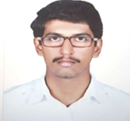
ALEXANDER.K.P
(2011-2015)
Chief Executive Officer
GF Shreyas, Ernakulam
Salary: 8 LPA
|
The Kavery Engineering College has been an integral part of my life since I started studying engineering. It has been a place of learning and growth, where I have developed my technical skills and knowledge and gained invaluable insights into the world of engineering.
|

SIVASAMY.K
(2013-2016)
Technical Assistant, TNEB, Tirupur
Salary: 2.5 LPA
|
The Kavery Engineering college is a place where I have made lifelong friends and formed strong bonds with my peers. The college has also equipped me with the skills and confidence to take on the challenges of the future. I am forever grateful for the opportunities and experiences it has offered me and will cherish the memories for years to come.
|
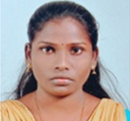
AKALYA.V
(2016-2020)
Analyst, Capgemini, Chennai
Salary: 3 LPA
|
The Kavery Engineering College has an excellent placement record for its students. The college has a dedicated placement cell that works closely with these companies to provide the best possible placement opportunities to its students. The college also has dedicated placement officers who mentor and guide the students in their job search and provide them with the necessary resources to help them succeed.
|
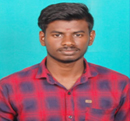
MOHANRAJ.R
(2016-2020)
Gr. II, Police Constable, Thanjavur
|
The Kavery Engineering College provides coaching for various government exams. The college provides expert guidance and support for students appearing for these exams. The college provided me the facilities such as mock tests, workshops, and seminars to help students prepare for the exams. The college also provides scholarship for students who are financially weak and need assistance in preparing for these exams. |

SASIKUMAR.M
(2009-2013)
INVENTAA, Chennai
Salary: 3.6 LPA
|
The management of the EEE department is excellent, and the students receive a high-quality education. Every faculty in the department guided me a lot. They have given me the opportunity to select my own projects and have helped me throughout. From the beginning of the last years, they are offering employment chances. The college organized various pre-placement programs for each and every student to crack the jobs – during on and off campus placements.
|

AJITHKUMAR.P
(2017-2021)
Infosys, Chennai
Salary: 3.6LPA
|
The knowledge I acquired from this institution is vast. Whatever state today I am in is all because whatever I learned during those 4 beautiful years at The Kavery Engineering College. The tie-up with core and IT Industries has been the great factor and happy to see the students getting placed every year with very good package.
|

VELUSAMY.T
(2015-2019)
Technical Assistant, TNEB, Tirupur
Salary: 2.5 LPA
|
It had been a wonderful experience for me. It only took me 3 years to feel permanently obligated to the college. We had a fantastic faculty who were all experts in their professions and never turned us away when we needed them. They went above and beyond the call of duty to assist us. The college set up a number of pre-placement initiatives to help every student land a job during on- and off-campus placements.
|
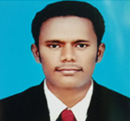
JAMES.M
(2007-2011)
Electrical Engineer, Airtel, Salem
Salary: 4 LPA
|
I have earned bunch of knowledge from the faculties. The campus of Kavery Engineering College is beautiful and provides a great atmosphere for learning. The academics offered are of at high standard. It provides a great opportunity for students to network and make connections. It has a great reputation in the industry and is well-respected. |
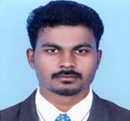
KALAIVANAN.A
(2013-2018)
Production Manager, Royal Enfield,
Chennai
Salary: 3.4 LPA
|
I have learned a tremendous amount from this institution. The reason for what I am today is the kavery Engineering College and the faculties who stood as a back bone for our success. The collaboration with the industries has been a fantastic asset, and it makes me delighted to see the students get hired every year with excellent compensation.
|

MUKESH.M
(2014-2019)
Safety Engineer, JSW Steel Limited,
Pottaneri
Salary: 3.45 LPA
|
The four of journey in this campus is a life time memorable moments. The college offered the placements atmost for all the students. The placement cell of our college provides ample opportunities to the students to get placed in top-notch companies. The placement cell also provides guidance and support to the students in their career paths. The placement cell also provides internships to the students. |